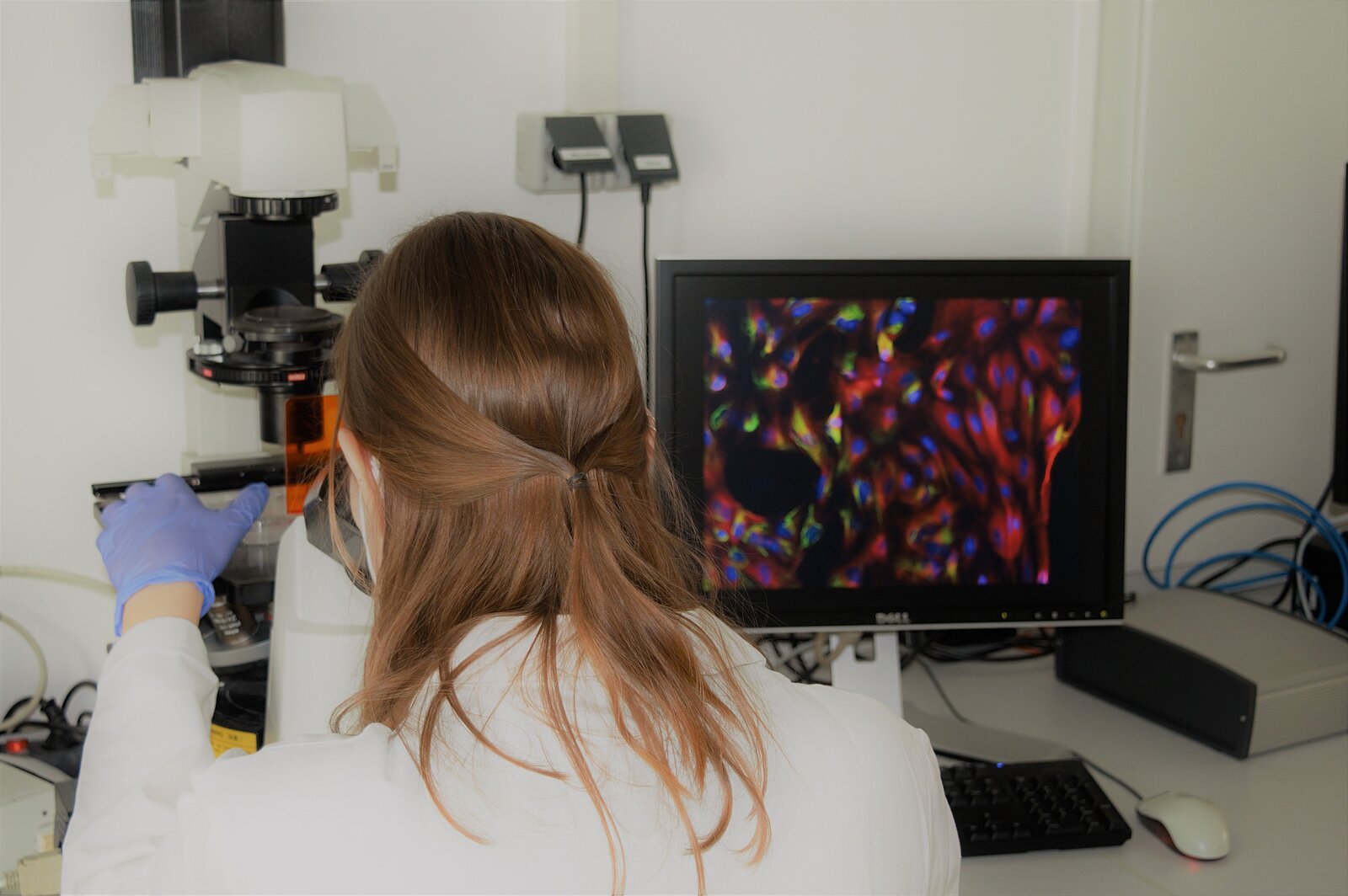Mycotoxins
Mycotoxins are secondary metabolites produced by moulds that can be toxic to animals and humans even in very small quantities. Due to possible health-endangering effects, the input of mycotoxins from food of plant and animal origin is monitored. This requires analytical test systems with which mycotoxins can be detected in many different matrices. The focus of our investigations is on the application of simple, rapid and practical methods (Enzyme-linked Immunosorbent Assay, ELISA), which allow a cost-effective detection of mycotoxins.
Contact person:
Prof. Dr. Madeleine Plötz
Phone: + 49 511 856 7256
Email: Madeleine.Ploetz@tiho-hannover.de
Inhibitory substances
Based on EU Regulation No. 37/2010, every food business operator is obliged to comply with defined residues of pharmacologically active substances (Maximum Residue Limits - MRLs) in food of animal origin. To this end, tests for antibiotic residues (inhibitor tests) are carried out in milk. We investigate the detection sensitivities of different inhibitor tests in relation to the various substance groups of antibiotics. Here, we not only examine cow's milk, but also the milk of other animal species, such as buffaloes and horses.
Contact person:
PD Dr. rer. nat. Nadja Jeßberger
Phone: + 49 511 856 7547
Email: Nadja.Jessberger@tiho-hannover.de
Microbiological safety of thermised milk and dairy products
The thermisation of milk, in contrast to pasteurisation, is not defined by a legally prescribed temperature-time combination. The word "thermised" could be perceived in common usage as a synonym for "pasteurised" and suggest to the consumer that it is a similarly safe product. This may be particularly relevant for sensitive consumer groups such as pregnant women and the elderly, who are strongly advised not to consume unpasteurised dairy products. Therefore, we investigate at which temperature-time combinations human pathogenic microorganisms are safely killed in order to make recommendations for the production of dairy products from thermised milk.
Contact person:
Veterinarian Johanna Vahle
Phone: + 49 511 856 7435
Email: Johanna.Vahle@tiho-hannover.de
Beta-casein in milk and dairy products
The morphine derivative betacasomorphin-7 (BCM-7) is formed from A1 beta-casein by enzymatic cleavage during the digestion of cow's milk. Within the framework of the FEI project 21953 / N 1 "Beta-casein in milk and dairy products: physiological and technological significance", research is being carried out into whether and to what extent BCM-7 affects the human organism (intestinal tract). In addition, a rapid detection system for BCM-7 is developed and validated. Moreover, the route of entry and the associated amount of BCM-7 in various dairy products is investigated. Hereby we contribute to ensure the high quality standard of dairy products and to confirm the health safety of A1 milk.
Contact person:
Prof. Dr. Madeleine Plötz
Phone: + 49 511 856 7256
Email: Madeleine.Ploetz@tiho-hannover.de
Pathogenicity mechanisms of Bacillus cereus
Bacillus cereus is a widespread soil bacterium responsible for two different types of food poisoning. The subject of our research is the so-called toxico-infection with the leading symptom diarrhoea. This is triggered by pore-forming enterotoxins, which are produced by the co-consumed bacteria in the intestine. On the one hand, the mechanism of pore formation in the target cell membrane by the three-component enterotoxins is investigated in detail. On the other hand, other pathogenicity factors are investigated, such as survival of the bacteria in the gastric passage, germination of spores, the capacity for active locomotion, adhesion to the intestinal epithelium, and the ability for enterotoxin production under intestinal conditions. The aim of our research is to predict the hazard potential of foods contaminated with B. cereus in detail.
Contact person:
PD Dr. rer. nat. Nadja Jeßberger
Phone: + 49 511 856 7547
Email: Nadja.Jessberger@tiho-hannover.de



